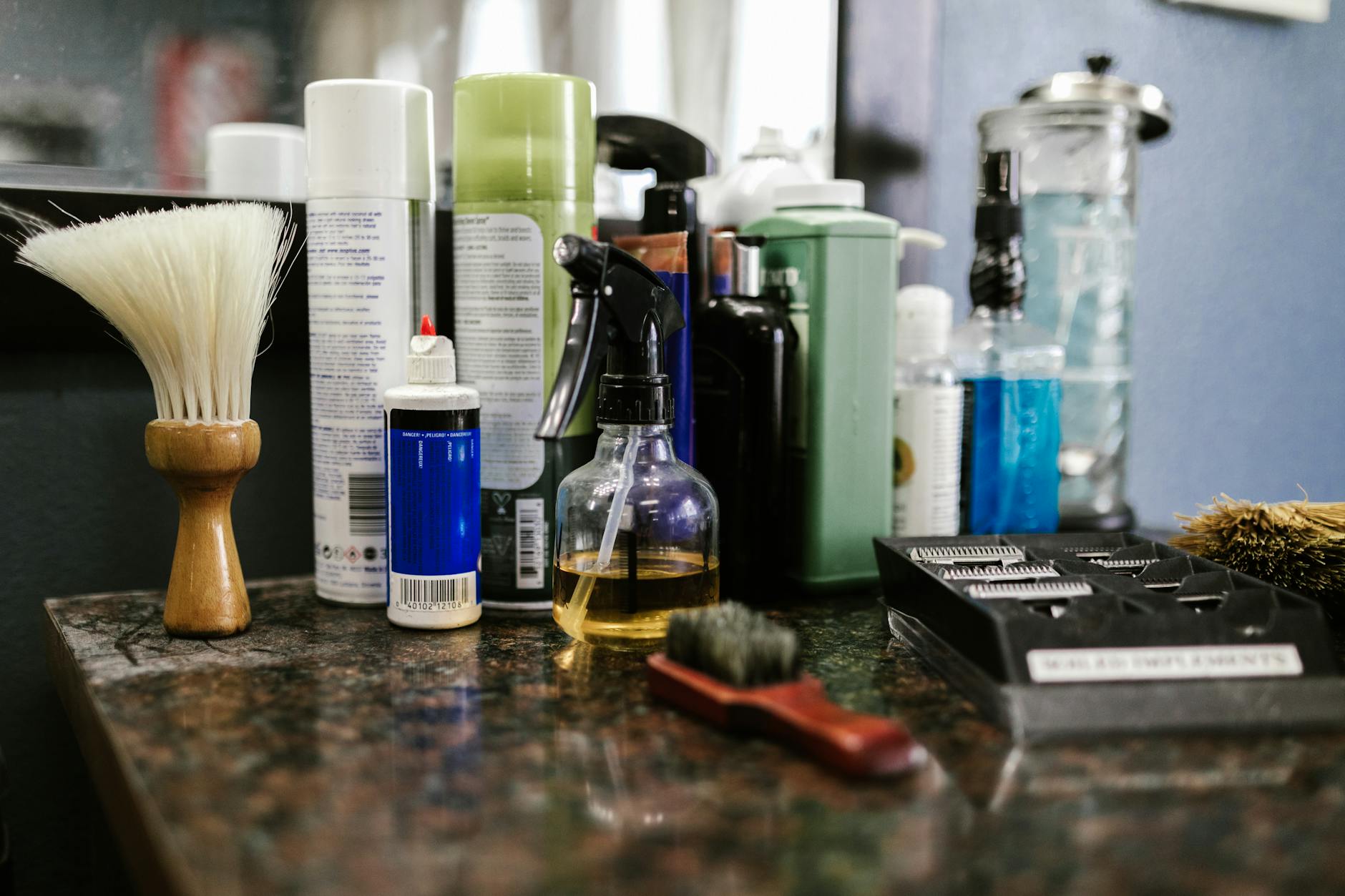How to Choose Eco-Friendly Sunscreens for Australia’s Marine Life

Understanding Eco-Friendly Sunscreens
In our quest for sustainable skincare, choosing the right sunscreen is essential for protecting both our skin and the environment. As an advocate for eco-friendly beauty along the Perth coastline, I can't stress the importance of this enough. When searching for sun protection, prioritize products like zinc sunscreen which are known for their effective sunblocking capabilities without harming marine ecosystems. These formulations often contain natural sunscreen ingredients that serve to shield the skin while minimizing environmental impact.
Key ingredients play a significant role in defining how eco-friendly a sunscreen is. Opt for formulations rich in minerals like zinc oxide or titanium dioxide, which are free from nanoparticles that could damage coral reefs. Chemical sunscreens commonly include harmful compounds such as oxybenzone and octinoxate—ingredients notorious for their negative impact on marine life. Avoiding these will ensure you're doing your part in protecting sensitive marine ecosystems off Cottesloe Beach and beyond.
To further integrate sustainable practices, consider simple but impactful skincare habits. If you apply sunscreen after a refreshing swim at Cottesloe, remember to choose reef-safe options that won't wash off into the ocean, upsetting the fragile balance of marine life. By making informed choices that align with Cottesloe Beach's coral reef initiatives, you contribute to preserving our precious marine environments while keeping your skin healthy and protected.
Importance of Reef-Safe Sunscreens
Effects on Marine Life
As an advocate for sustainable skincare and environmental well-being, I emphasise the significance of using reef safe sunscreen when visiting our stunning Perth coastline. Harmful chemicals found in many conventional sunscreens can cause significant damage to coral reefs and affect marine biodiversity. Compounds such as oxybenzone and octinoxate can lead to coral bleaching and disrupt the ecosystems where marine life depends for nourishment and shelter. By opting for reef-safe products, we support the conservation of marine habitats and allow vibrant biodiversity to thrive in areas like the waters surrounding Fremantle Marine Research Laboratories.
The Science Behind Reef Safety
The move towards reef-safe formulations is backed by science, which demonstrates how environmentally friendly ingredients mitigate harm to marine ecosystems. Natural ingredients, like non-nano zinc oxide and titanium dioxide, provide much-needed UV protection without sacrificing the health of our oceans. These components work by creating a physical barrier on the skin's surface, reflecting UV rays rather than being absorbed, substantially reducing the potential for chemical contamination in marine environments. Moreover, eco-friendly options afford us peace of mind, knowing our choices support sustainable ocean stewardship.
Success Stories in Conservation
Remarkable strides are being made in marine conservation through the collective effort of eco-conscious individuals transitioning to safer sunscreen alternatives. Initiatives like those spearheaded by Cottesloe Beach's coral reef initiatives show the impact of conscientious consumer practices. By choosing reef-safe products, we become active participants in preserving our precious marine ecosystems for future generations.
Selecting the Right Sunscreens
Reading Labels and Certifications
When selecting a sunscreen, it's vital to become adept at scrutinising labels. Consider seeking certifications that guarantee reef safety, as these are often a reliable indicator of a product's environmental impact. Look for labels that indicate the sunscreen is free from oxybenzone and octinoxate, two chemicals known to cause coral bleaching. Understanding these labels will empower you to choose products that align with your commitment to safeguarding marine ecosystems, particularly at places like Cottesloe Beach's coral reef initiatives.
Comparing Different Formulations
Choosing between different sunscreen formulations is an important step in eco-conscious shopping. Mineral sunscreens, containing ingredients like zinc oxide or titanium dioxide, are generally considered safer for marine life than chemical alternatives. They're designed to sit on top of the skin and reflect UV rays without leaching harmful substances into the ocean. With various kids sunscreen options available, it's equally essential to choose products that offer effective protection while being gentle and eco-friendly.
Identifying Trusted Sources
Trustworthy sources can guide you in selecting sunscreens that are both effective and eco-friendly. Seek out information from reputable environmental science journals and ensure that products are backed by evidence in peer-reviewed research. Engage with sustainability forums where fellow eco-awareness advocates share experiences and recommendations. Additionally, the Fremantle Marine Research Laboratories is a fantastic resource for local insights and developments in sunscreen efficacy and environmental safety. By equipping yourself with this knowledge, you align your purchasing decisions with your values, supporting a healthier planet.
Application and Usage Tips
Best Practices for Maximum Protection
When it comes to ensuring optimal protection from the harsh Australian sun, there are a few best practices to keep in mind. First, choose a baby sunscreen with high SPF and broad-spectrum protection. Apply it generously on all exposed skin about 20 minutes before heading outdoors. It's essential to cover thin-skinned areas such as the ears and back of the neck.
Reapplying Without Harm
Maintaining sun protection involves consistent reapplication. After two hours, or sooner if you're swimming or sweating, always reapply your sunscreen. This practice is crucial along the Perth coastline, particularly at Cottesloe Beach, where the sun's intensity can be quite strong. Seek out eco-conscious baby sunscreen formulations that are free from harmful chemicals to protect the delicate marine life thriving in these waters.
Complementary Protective Measures
In addition to using sunscreen, consider other protective measures such as wearing broad-brimmed hats, UV-blocking sunglasses, and long sleeves when possible. These strategies work well in tandem with sunscreen to protect your skin and contribute to sustainable practices. By integrating these methods into your daily routine, you can enjoy the sunshine responsibly, mindful of your impact on both your health and the environment.
Sustainable Skincare Practices
Adopting Ocean-Safe Ingredients
When we're choosing skincare products, it's essential to support the preservation of our beautiful marine environments, especially around our beloved Perth coastline. Often, the quest for flawless skin can unintentionally harm these ecosystems through ingredients that aren't reef-safe sunscreen. To make informed choices, look for ocean-friendly formulations that avoid oxybenzone and octinoxate, which are known to bleach coral reefs. Instead, brands focusing on mineral-based solutions like zinc oxide offer effective sun protection without compromising Cottesloe Beach's coral reef initiatives.
Embrace Natural, Plant-Based Formulations
To contribute to environmental health, we can turn our attention toward natural formulations rich in plant extracts, which are not only beneficial to the skin but also eco-friendly. Oils from nature, such as coconut and jojoba, align with sustainability goals and can be grown ethically with minimal environmental impact. Incorporating these ingredients into our everyday routine ensures we are nourishing our bodies without sacrificing the wellbeing of the Fremantle Marine Research Laboratories' study areas.
Implementing Conscious Consumer Practices
Becoming stewards of the ocean isn't just about ingredient selection; it's also about employing mindful practices to enhance sustainability. For example, using reusable jars instead of single-use plastics, or sharing eco-friendly tips with friends at an eco-beauty workshop, can have a substantial impact over time. By reapplying sunscreen using sustainable containers or opting for UV-protective clothing, we can significantly reduce our ecological footprint and support marine life preservation through small, intentional choices.
Combining knowledge with action is key in safeguarding our local marine ecosystems in Perth. Making conscious decisions about skincare empowers us and strengthens our commitment to a healthier planet.


